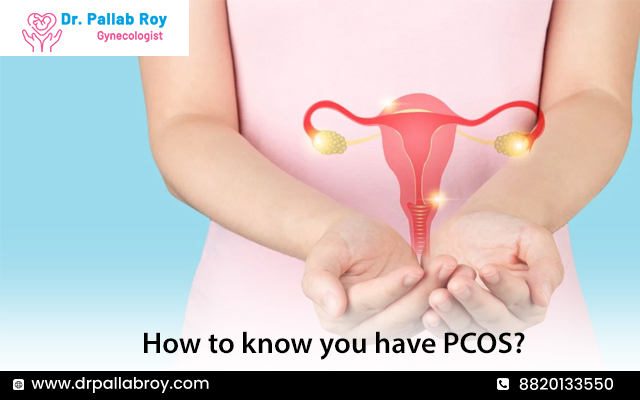Are you having concerns about PCOS? Get the best PCOS treatment Behala if you experience these symptoms.
Polycystic Ovary Syndrome (PCOS) is a common hormonal condition affecting roughly 1 in 10 women of childbearing age. It is characterised by irregular periods, excess androgen (male hormone) levels and multiple small cysts in the ovaries. While there is no single definitive test, recognising the signs and seeking PCOS treatment in Behala can help you manage your health and well-being effectively.
Understanding the Symptoms:
The doctors diagnose PCOS with these three key features:
- Irregular Periods: This can manifest as infrequent or absent periods (less than eight times a year) or menstrual cycles exceeding 35 days.
- Excess Androgen: This can be detected through blood tests or physical signs like:
- Hirsutism: Excessive hair growth on the face, chest, back or abdomen.
- Acne: Persistent breakouts on the face, chest and back.
- Male-pattern hair loss: Thinning hair on the scalp.
- Polycystic Ovaries: Ultrasound scans may reveal multiple small cysts in the ovaries, though their presence alone does not confirm PCOS. To check the conditions, doctors may also order blood tests to analyse hormone levels, including testosterone levels, Luteinizing Hormone (LH), Follicle-stimulating Hormone (FSH) levels and Anti-Mullerian Hormone (AMH) levels.
Other Symptoms:
While these are the core symptoms, PCOS can also present with a broader range of experiences, including:
- Weight gain and difficulty losing weight: This can be due to insulin resistance, a common feature of PCOS.
- Skin darkening: Patches of darkened skin, particularly in the neck and underarms.
- Fatigue and sleep disturbances: Difficulty falling asleep, staying asleep or experiencing excessive daytime sleepiness.
- Mood swings and anxiety: These can be related to hormonal fluctuations and the impact of PCOS on overall well-being.
- Fertility concerns: Irregular ovulation can make it challenging to conceive naturally.
- Sleep Apnea: Women with PCOS are at higher risk of Obstructive Sleep Apnea (OSA), a condition where the airway gets blocked many times during sleep.
Not everyone with PCOS experiences all the symptoms. The severity and presentation can vary between individuals. Hence, it is crucial to consult a doctor specialising in PCOS treatment Behala for an accurate diagnosis and personalised treatment.
If you suspect you might have PCOS, schedule an appointment with your gynaecologist. Early diagnosis allows for proactive management and developing a treatment plan according to your needs.
What Your Doctor Will Do:
- Your doctor will want to hear about your experiences and symptoms in detail. Be open and honest with them; this helps build a clear picture of what’s happening.
- Be prepared to discuss irregular periods, weight fluctuations, excessive hair growth, acne or any other concerns related to PCOS.
- Physical examination may involve checking for signs of excess hair growth and acne.
- Blood tests can check for hormone levels, insulin resistance and cholesterol levels.
Living with PCOS:
With proper management, you can live a healthy and fulfilling life. Treatment options may include:
- Lifestyle changes: Diet, exercise and stress management can significantly improve your symptoms and overall health.
- Medications: These can regulate hormones, address insulin resistance and support fertility.
By understanding the signs and symptoms, seeking professional guidance for PCOS treatment Behala and embracing a proactive approach, you can manage PCOS.

